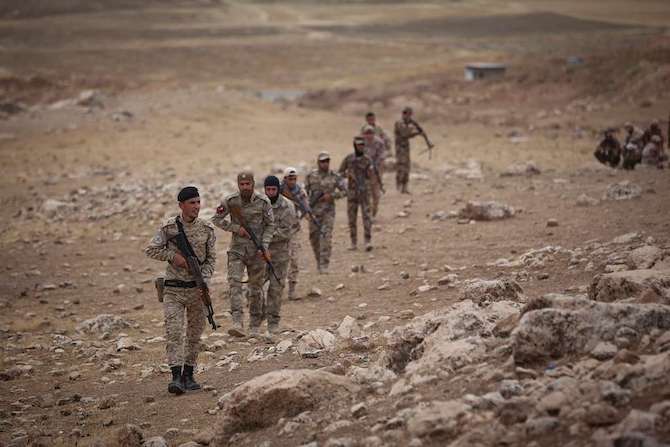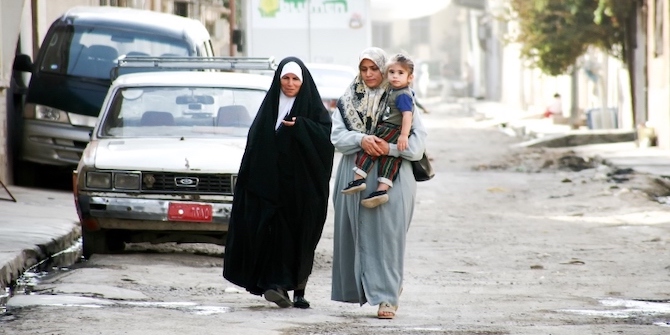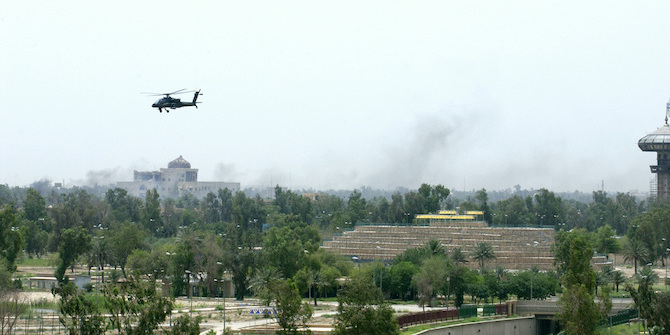by Omran Omer Ali & Nazar Ameen Mohammed

On 9 December 2017, former Iraqi Prime Minister Haider al-Abadi declared victory over the Islamic State in Iraq. Although the Islamic State (IS) was territorially defeated six years ago, the impact of the atrocities committed by the terrorist organisation still reverberates today, and the communities that IS targeted are paying the price.
Between 2014 and 2017, hundreds of thousands of Iraqis were killed, millions of individuals were displaced, and billions of dollars of damage was inflicted due to IS’ actions, occupation, and the subsequent military campaign to defeat its forces. Livelihoods were devastated by IS’ targeted destruction. The group focused its attacks on minoritised communities (many indigenous) living in Nineveh province in northern Iraq, including Assyrians (Christians), Kaka’i, Shabaks, Turkmen, and Yezidis. Members of these communities were executed, enslaved, or forcibly converted to IS’ radical form of Sunni Islam. IS also destroyed many historical, religious and cultural heritage sites, leading to a sense of spiritual loss and community estrangement.
The devastation inflicted still affects these communities to this day. Over the last four years, our team has conducted extensive research with communities in the Nineveh Plains and has observed several issues that communities still face six years after the defeat of IS.
Livelihoods
Agriculture is the primary source of livelihood in the Nineveh Plains, and local communities hold a wealth of farming knowledge. However, there has been a policy failure in Iraq to reverse the damage done by IS and to safeguard the sector against increasing climate shocks. There has been neglect to introduce policies that consider what is needed to build back the agricultural livelihoods that were destroyed.
As a result, farmers simply cannot be competitive. Cheap agricultural imports, the cost of replacing destroyed and stolen equipment, and the rising costs of seeds, fertiliser and pesticides have made farming unsustainable. This policy failure has led non-governmental organisations, who cannot make policy changes, to take up the slack with shorter-term assistance. The communities we have worked with feel the resulting aid is unfairly distributed, which can also lead to tensions.
At the same time, there has been a failure to adequately address the destruction of wells and irrigation systems by IS. Rising temperatures and decreasing rainfall due to climate change are exacerbating this issue. Lack of success in addressing these compounding issues has led to many abandoning agriculture, despite it being the main source of livelihood, resulting in the degradation and loss of agricultural lands.
Demographic Change
Despite many of those displaced by IS returning to their homes, a considerable portion have chosen not to return, mainly due to instability, insecurity, mistrust, and fear of the next iteration of IS. Additionally, many of those who have returned have left again. Reasons for leaving include the lack of employment opportunities and governance failures due to territorial uncertainty over disputed administrative control between the Kurdistan Regional Government and the federal government in Baghdad.
Tensions have arisen between and within communities due to the demographic shifts in the wake of the conflict. These shifts have contributed to a sense of loss of homeland. This is particularly present between Assyrians and Shabaks, as Shabaks have moved into and bought property in the areas vacated by Assyrians. Many Assyrians view this as forced demographic change, as Shabaks are seen to be supported by Shiite authorities and militias. At the same time, Shabaks feel they are legally moving into good available land.
Regardless, the failure to create the stability necessary for communities to return to their homes has made the demographic shift an issue. As both communities have built government-backed militias as part of the response to IS, tensions between them could prove dangerous.
Return to Normality
Despite IS being territorially defeated six years ago, communities feel that life has not returned to normality. The securitisation of Nineveh, including increasing checkpoints operated by multiple actors, is inhibiting the freedom of movement of local communities. This has significant adverse impacts, including limiting livelihood opportunities, making it harder to access community and family, and preventing access to sites of religious and cultural importance.
Many minoritised communities also feel threatened in carrying out their cultural and religious practices due to the securitisation of the province. Ensuring the freedom to do so is intrinsic to making these communities feel they belong in Iraq. It also forms part of a more holistic approach to return policies, where the lifestyle that people return to is central to policy implementation.
The defeat of IS in Iraq was a monumental achievement. It saw the country come together against a common cause, leading to many international actors refocusing their attention on Iraq. However, IS cannot truly be defeated if those who they targeted can no longer live how they choose to. Six years after the initial defeat, many affected communities still live in limbo. Despite new international conflicts, it is imperative that the government of Iraq and the international community continue to build on their initial successes to destroy the legacy of IS and shore up the prospects for a stable and prosperous Iraq.
Both authors are part of the ‘Support to Traditional Cultural Practices in Northern Iraq’ project led by the LASER PULSE consortium.






